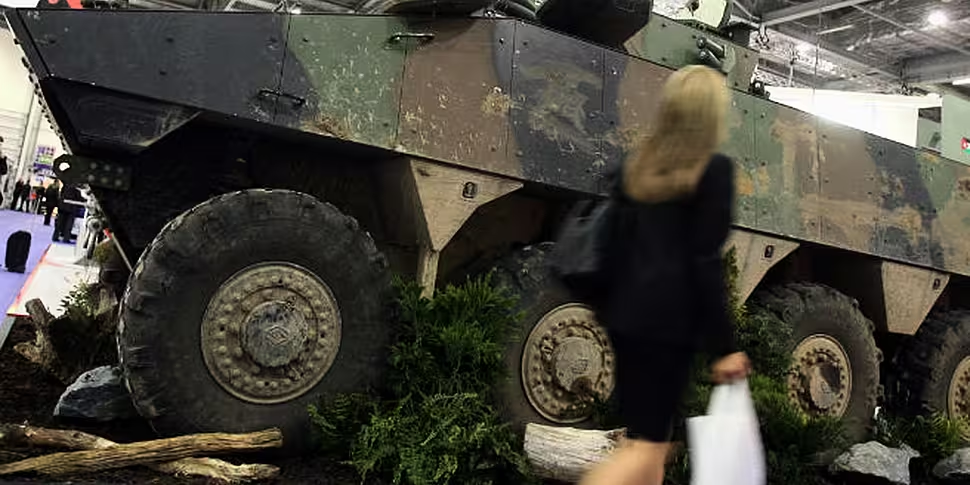Last year the Irish government issued almost 800 licences to exporters producing component parts for use in military goods abroad, and it is a growing industry. It prompts questions about the true nature of our neutrality.
Earlier this month, London hosted the largest arms fair in the world as four million Syrian refugees scrambled to safety across the world, having fled conflict in their own country.
A Green politician in the UK pleaded with her colleagues in the House of Commons to see the link between the industry they support and the terrible tragedy unfolding across Europe and the Middle East.
Many Irish social media users saw the posts that circulated after Caroline Lucas's impassioned plea, but how many realised that Ireland too plays a part in the international arms trade?
Newstalk.com took a look at the industry, which we support through manufacturing and investment.
In the first of two articles, we look at the part Irish manufacturers play in the arms trade.
We make parts
The Department of Jobs, Enterprise and Innovation licenses the export of products in the arms area.
Officials at the Department say Irish export items classified as “military goods” are usually component parts rather than finished military equipment.
They say our involvement in the industry on that level is a consequence of Ireland's development as a technology and engineering hub.
But the government, while actively seeking to increase the value of our exports, has admitted it is concerned about its responsibility to ensure that component parts for military use do not end up in the wrong hands after they leave the country.
Minister Richard Bruton has said: "Export control is an aspect of our work in which the aim of export growth needs to be balanced by national and international priorities in essential areas such as non-proliferation of weapons of mass destruction, human rights and regional conflict."
Licensing and regulation
Exporters here must apply to Irish authorities for a licence to export controlled goods and technologies that appear on the EU's Common Military List.
That list is constantly being updated, and it is thanks to one of the most recent changes that many prisons in the US are finding it almost impossible to source the drugs they need to execute prisoners by lethal injection.
European regulators have made moves to cut off that supply, leaving federal authorities in the US scrambling for supplies of barbiturates, in particular.
The controlled list includes both military goods and dual-use goods, or products that could have either military or civilian applications.
Since 2008, the Department of Jobs, Enterprise and Innovation has been producing annual reports on its control of exports.
Those reports show the number of licences given out by the Irish government has fluctuated in recent years from a low of 455 in 2011 to a high of 879 in 2010.
Last year, 797 licences were granted, down from 875 in 2013.
Latest figures for 2014 show a 57% increase on the number of licences given out in 2008 (508 in total), the first year for which figures are available.
The value of the licences issued in the last six months of 2014 alone came to €749 million, according to the Department of Enterprise.
However, the Department has moved to explain that the value they attribute to the licences may not be reflected in the actual value of the subsequent exports, because firms have to speculate on their future trade in their applications.
They also point out that a significant number of military licences are issued to individuals holding sports firearms and to companies engaged in mining activity.
Military tank including Irish component parts. Photo: Timoneygroup.com
Manufacturing
Timoney Technology, based in Navan, is one of the Irish companies involved in manufacturing parts that go into military machinery.
The company's website says it is a world leading expert in Mobility Systems for heavy vehicles and specialist vehicle applications.
The engineering firm says they have 40 years' experience in the defence and commercial vehicle sectors.
The Department of Enterprise does refuse licence applications, usually on the grounds of considerations about the intended end-use and the risk of diversion.
They have previously stated that they are concerned about making sure products manufactured here can be guaranteed to end up with the intended recipient, and not fall into use on the black market where they could be traded to people implicated in humanitarian disasters.










